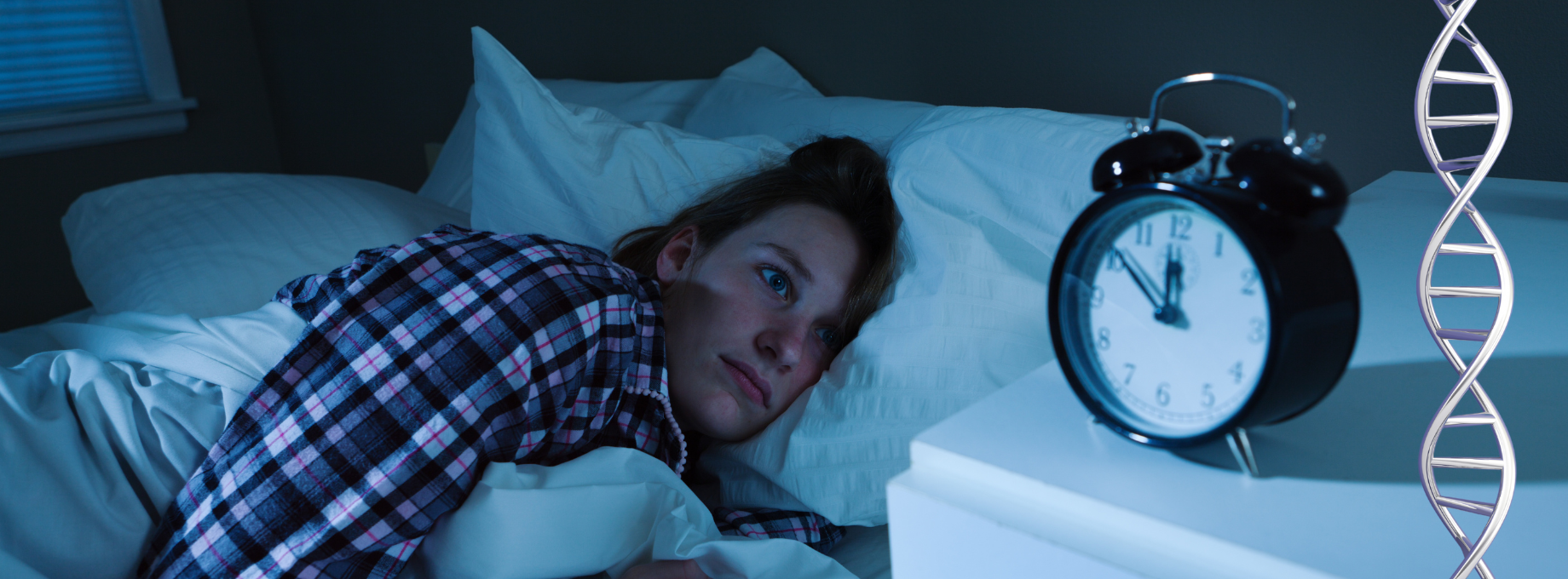As this years’ Mental Health Awareness Week gets underway in the UK, researchers from the Leverhulme Centre for Demographic Science explore the role of genetics and sleep in understanding our mental health.
Sociogenomics to help improve our understanding of mental health
A ground-breaking Nature Human Behaviour study co-authored by our Director Professor Melinda Mills identified genetic variants influencing fertility. The study found a relationship between the timing of age at first sex and first birth with a variety of externalising indicators namely psychiatric disorders such as ADHD and schizophrenia, substance use and personality.
Professor Melinda Mills adds, ‘We found a strong genetic relation between the genetics underlying the timing of reproductive behaviour with the genetics of psychiatric externalising traits such as ADHD and major depressive disorder.’
The study shows that genetic factors associated with early substance use such as smoking, an early sexual debut, and teenage pregnancy are to some extent shared, providing new pathways for research into linking psychiatric factors with reproduction.
According to the Mental Health Foundation, three in every 100 people in England will experience depression in any given week, and eight in every 100 will experience mixed depression and anxiety.
Our Postdoctoral Researcher Dr Evelina Akimova’s previous work has focussed on studying depressive symptoms in relation to employment trajectories during times of economic downturn and recessions.
Dr Evelina Akimova said, ‘Advances in molecular genetics and a recognition that social and biological drivers influence mental health has enabled researchers to use sociogenomic approaches to better understand the impact genetics have on disorders such as depression and anxiety.’
In her thesis, Dr Evelina Akimova explores these topics, and uses sociogenomic approaches to bridge the gap in our knowledge of historical, social, and biological predictors of depression within the UK.
Sleep as an important lens to understand mental health
Sleep and mental health are interconnected, with sleep being one of the most essential aspects to understanding mental health. For example, changes to day-to-day life such as the COVID-19 pandemic can be particularly triggering for anxiety. Anxiety is one of the most common mental health problems and the theme of this year’s Mental Health Awareness Week taking place 15-21 May 2023.
In a paper published last year in the British Medical Journal Open, our Postdoctoral Researcher Dr Xuejie Ding and Professor Melinda Mills explored changes in sleep for 22,620 people during the first two months of the 2020 lockdown in the UK.
They found that sleep loss caused by worrying was common in the first month of lockdown, with women reporting more sleep problems than men. Whilst sleep duration increased for both sexes over the first two months of lockdown, women slept seven minutes shorter than men who averaged 49 minutes of extra sleep per week.
Dr Xuejie Ding adds, ‘Lockdowns forced individuals to change their daily routine which led to increased anxiety and sleep problems. Our results found that women were more prone to feeling anxious whilst spending more time on family duties such as home schooling, unpaid domestic duties, nurturing and caregiving.’
On the other hand, the researchers found that men’s sleep were more affected by changes in their financial situation and employment status related to the crisis.
Long working hours and a lack of sleep can also trigger and perpetuate anxiety. Up to 25% of public sector employees in the UK do some form of night work. Increasing evidence shows night work and persistent circadian rhythm disruption is a serious risk factor for health conditions, including depression, heart disease and type-2 diabetes.
A recent study in the journal Sleep by our CHRONO team used Biobank data on 53,211 workers to investigate if they had a genetic propensity to ‘eveningness’. The study found that night work led to significant sleep losses particularly for those who always work nights.
Whilst there were health implications for night shift workers, the study concluded that these vary between individuals dependent on their chronotype. Solutions to health consequences of night shift workers should therefore take these individual differences into account.
Professor Melinda Mills concludes, ‘These and other research have shown that our genetics and the amount of sleep we get impact our mental health. The Leverhulme Centre for Demographic Science will continue to study these important topics and others to help us understand and improve mental health for the benefit of all.’
The research featured in this article is part of the Leverhulme Centre for Demographic Science’s European Research Council Advanced Grant CHRONO, led by our Director Professor Melinda Mills.





